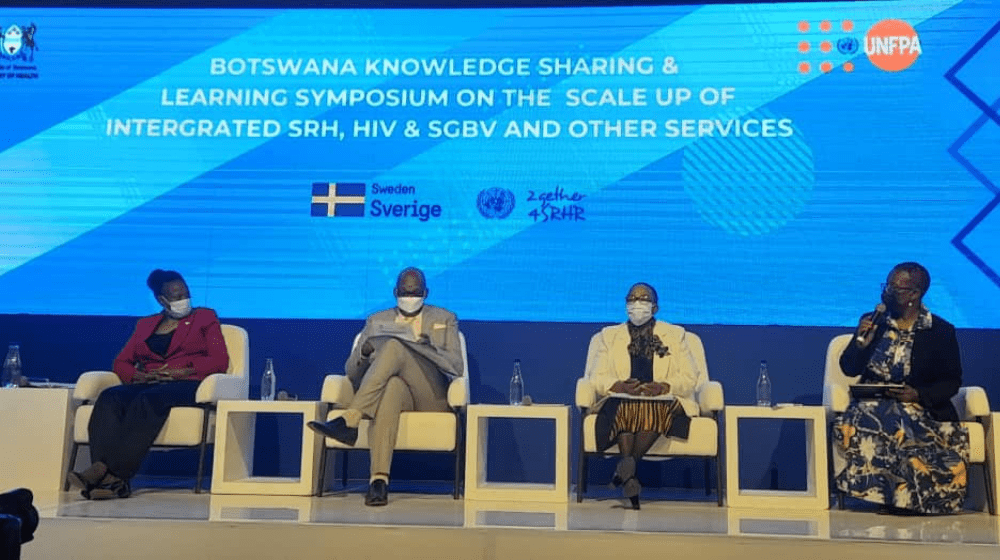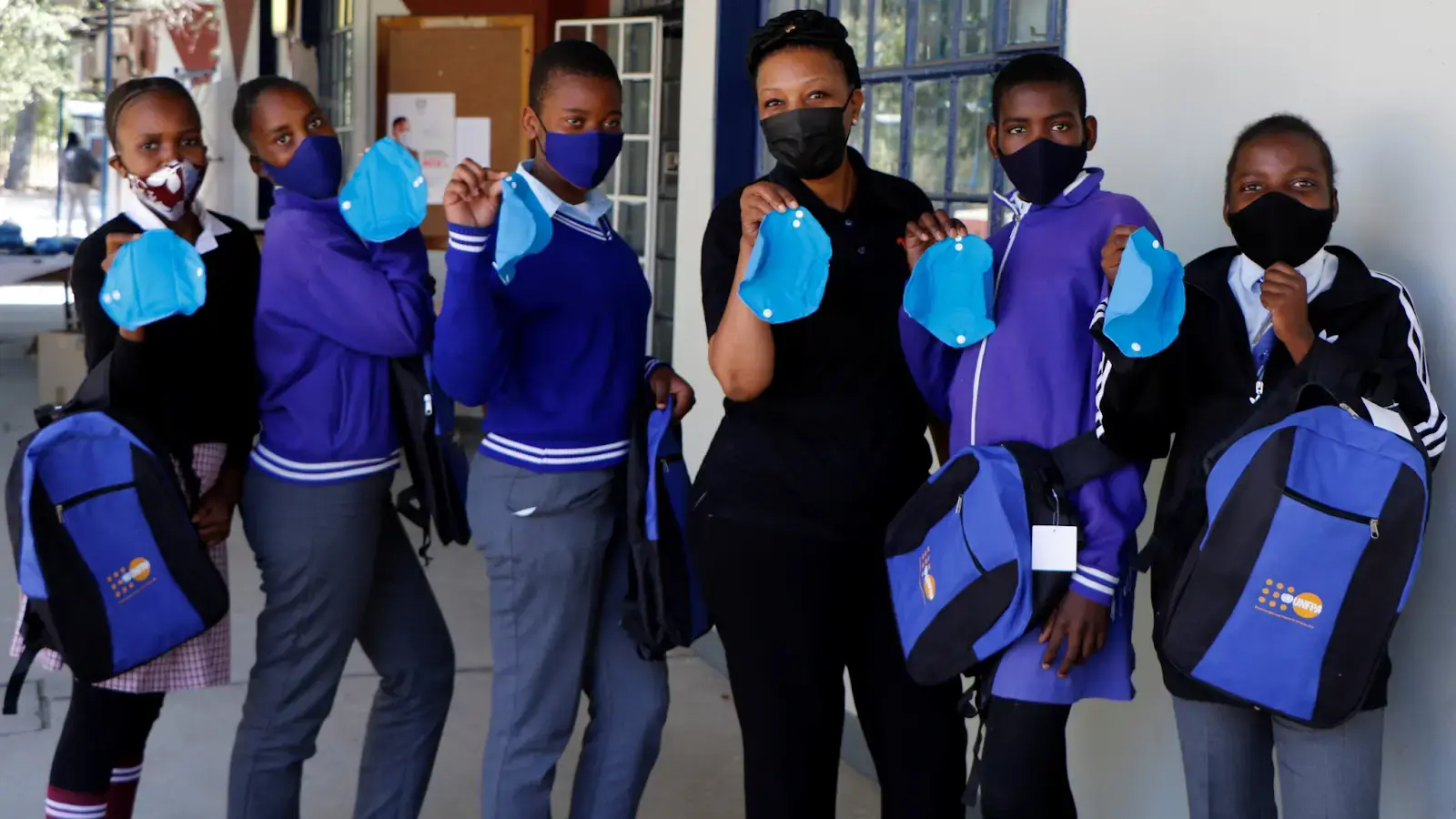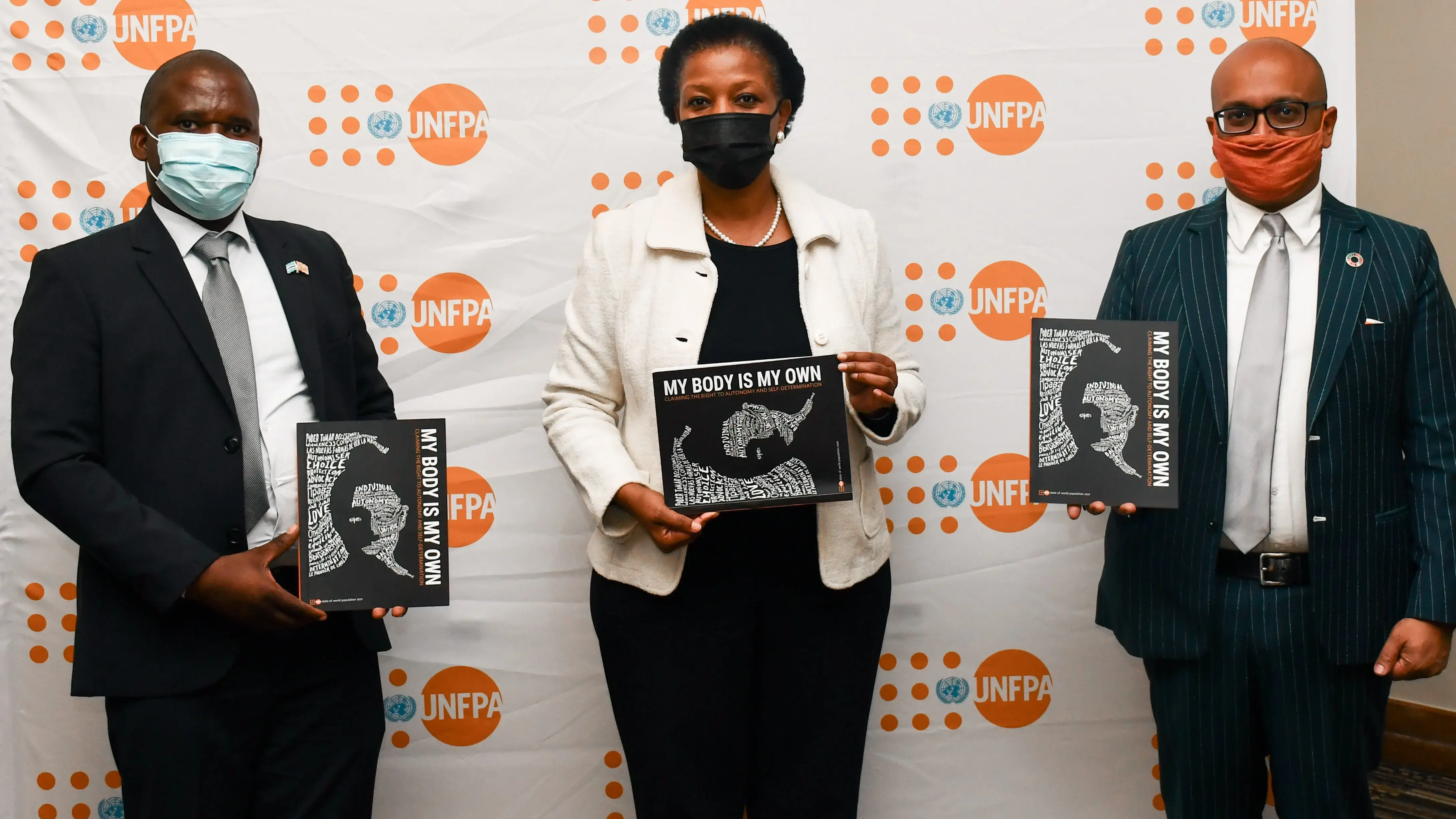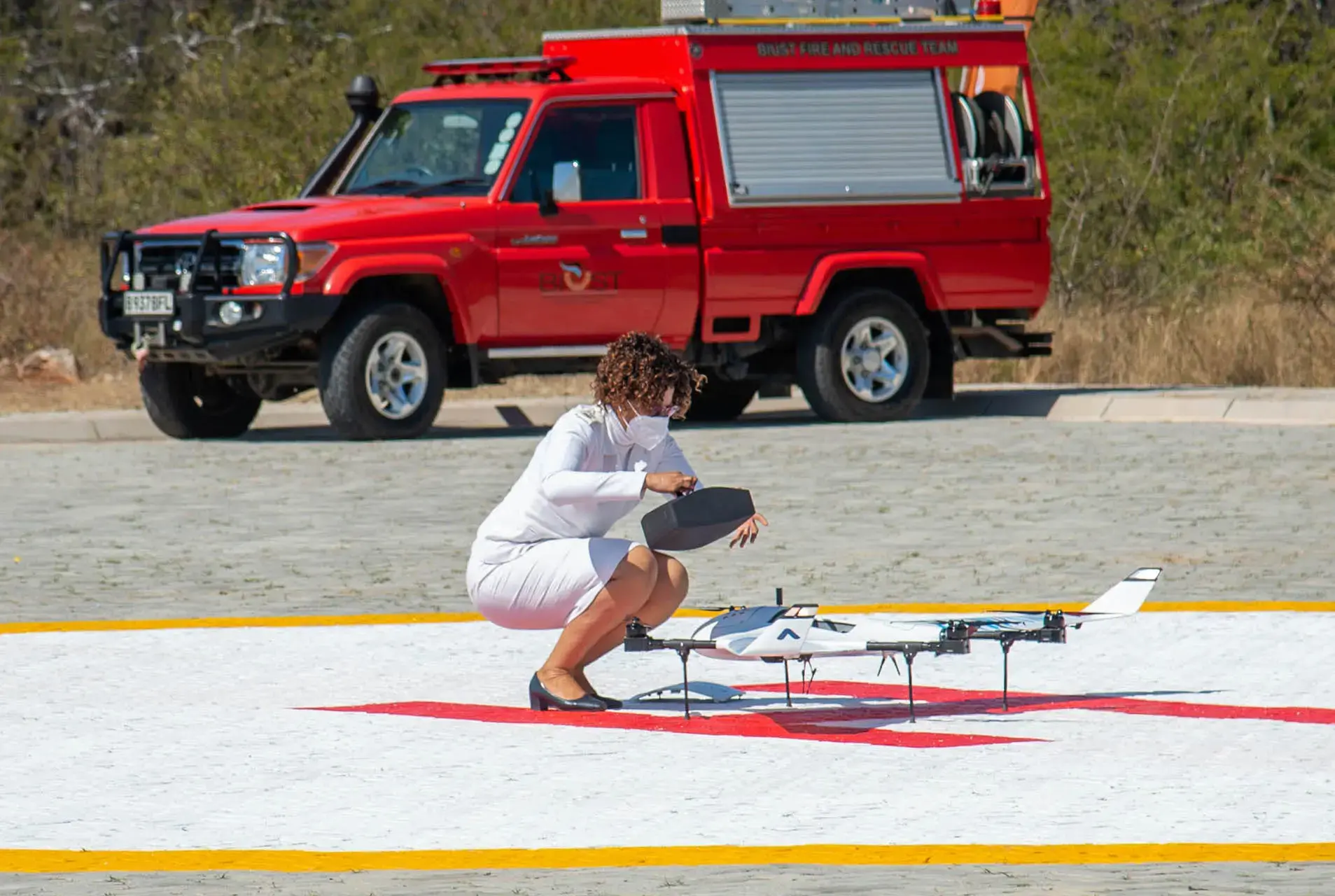Provision of integrated SRH/HIV and SGBV services is among Botswana's health sector approaches to increasing access to and use of a broad range of quality client-centered SRH services and HIV prevention, treatment, care and support, with linkages to gender and justice sectors.
United Nations Population Fund (UNFPA) Botswana has been supporting the Ministry of Health to scale-up the integration of Sexual and Reproductive Health and Rights (SRHR), HIV and Sexual Gender-based Violence (SGBV) services in thirteen (13) health districts under the 2gether 4SRHR programme since 2018. The 2gether 4 SRHR programme (2018-2021) is a regional programme supported by the Regional SRHR Team of Sweden, to improve the SRHR of all people in East and Southern Africa (ESA).
This was revealed at the joint Ministry of Health and UNFPA Knowledge Sharing and learning Symposium held on the 24th of May 2022 in Gaborone. The symposium brought together government officials from the Ministry of Health at central representatives from the 13 implementing districts, United Nations Agencies representatives from sister ministries, Civil Society Organizations (CSOs), community members and the media.
The main objective of the symposium was to share, reflect, distill and amplify lessons learnt within the country, to ensure that investments from the 2gether 4 SRHR support are sustained and scaled up and to ensure a responsible transition from the support. The implementing districts shared experiences in scaling up integration of SRH, HIV and SGBV services, their achievements and lessons learnt from the past 4 years of implementation.
In his welcome remarks, the Deputy Permanent Secretary in the Ministry of Health, Dr.Tshepo Machacha pointed out that there was a critical need for them as a Ministry and in collaboration with their stakeholders, to scale up and enhance the provision of integrated health services to minimize any barriers in accessing health services. “Through this, we will be able to contribute to the attainment of all health related sustainable development goals and their targets”.
The scale-up of quality client-centered SRH/HIV and SGBV services integration in Botswana is implemented as part of the phased national scale up approach, following the successful pilot conducted from 2011 to 2015. Based on the success of the Linkages Project, in 2015, Botswana adopted the integration of SRHR, HIV, and SGBV services as a national strategy. Service integration was scaled up by MOH in 13 districts in 2018 with support from the 2gether 4SRHR Programme, a comprehensive programme funded by the Regional SRHR Team of Sweden that aims to improve the SRHR of all people in East and Southern Africa, particularly adolescent girls, young people, and key populations.
Delivering the keynote address, the Permanent Secretary in the Ministry of Health Ms. Grace Muzila said the programme has had remarkable success in empowering people to be able to exercise their Sexual and Reproductive Health and Rights. She added that many people across the participating districts were not only reached and educated about GBV and SRHR, but they were also empowered on how they could protect themselves and those around them. “The community in its various strata was engaged and empowered. Women and children in particular, including teenage and adolescent girls, were empowered on their SRH rights.”
She praised her team for their resilience in ensuring that COVID-19 pandemic did not disrupt their programme. “In fact, COVID-19 helped us to come up with more innovative measures in which we could continue providing health services to our people. Given the lessons learnt, it is our believe, that we should consolidate and strengthen achievements made in the ten districts that participated during the first phase of the programme and use the lessons learnt to expand the programme to the remaining eight District Health Management Teams (DHMTs).” she added.
In his address, UNFPA Botswana, Head of Office, Mr. Innocent Modisaotsile explained that the initiative was a strategic intervention to maximize outcomes for SRH/HIV and GBV. He said when integration of SRH, HIV and SGBV is fully achieved “we are likely to have increases in areas such as condom use, use of contraceptives, and increase in HIV testing and treatment.” He said that the past 4 years have been exciting because they experienced an increase in enthusiasm and ownership of the integration initiative by frontline workers. He added that Botswana is now considered to be a success story in Africa in terms of integration of health SRH services. “As part of evidence to this, in December 2021, Botswana was invited to the International Conference on AIDS and Sexually Transmitted Infections in Africa (ICASA 2021) in Durban to showcase work on integration of SRH, HIV and SGBV services. We expect a number of countries to be visiting our country to come and learn from you and especially from the Ministry of Health.”
An overview of integration scale up by UNFPA SRH/HIV Linkages Coordinator, Ms. Kesaobaka Dikgole revealed that amongst the achievements and shifts in protecting SRHR in the past four years, was the review of Laws and policies; and development of strategic plans and guidelines that link SRHR, HIV and SGBV and commit to the provision of comprehensive integrated services; Capacity building was conducted in thirteen districts. She explained that it entailed training of TOT (training of trainers) model and then cascading the training to health facility level ensuring that all health facility staff including support staff are trained or sensitized. She added that they have developed implementation guides to ensure that health care workers especially at the front line are adequately guided in the provision of integrated SRH, HIV and SGBV services. “These include guidelines in the form of job aides and other materials. In terms of scaling up quality services through the support of the program we have been able to fulfill the objectives of our scale up plan in Phase 1 to scale up to thirteen districts.” Further, there was capacity for policy makers, legislators and community gate keepers to institutionalize, to promote national investments in developing, implementing, monitoring and evaluating national programmes that protect SRHR. In the context of COVID-19, successful advocacy for uninterrupted provision of SRHR services resulted in prioritization of SRH, HIV and GBV services as essential. There was increased awareness on the SRHR services availability achieved through targeted messaging using wide reaching media and publications.
Two panel discussions sparked conversations of multi faced perspectives on protection of SRH rights in the country. The first panel discussion which included, MoH PS Ms Grace Muzila, UNFPA Head Office Mr Innocent Modisaotsile, MOESD Ms Motshwari Mabote, CEO BGBVC Ms Lorato Moalusi, NAHPA Legal and Human Rights Office Ms Diana Nswele focused on Sexual and Reproductive Head and Rights (SRHR) as an essential element to achieving Universal Health Coverage (UHC). The aim of this high level was to discuss key actions needed to advance SRHR and UHC with the focus on rights, equality and accountability, taking into consideration the progress made and the priorities that need to be fast tracked to realise national, regional, global and continental SRHR targets.
The second panel focused on “Integrated health services delivery: Everyone has a role” showcased and highlighted the importance of team work and promotion of linkages in integrated service delivery with emphasis on sharing lessons from healthcare workers from implementing districts and civil society. Panelists included an ambulance driver, Clinic Orderly, Health Education Assistant (HEA), and nurse/midwive from public health facility and a Health Service Provider from BOFWA.
DHMT representatives shared their district experiences and answered questions from the audience. Ms. Rachel Sengadi of Bobirwa DHMT cluster stated that integration increased the number of services available to their clients. “We offer a one stop shop service provision to access services such as SRH/FP services, pap smear, PMTCT, PreP and STi screening. Also our Antenatal care partner testing and results improved from 22% to 60%. A nurse was deployed to provide services at Mmadinare Senior School since most of youth friendly services clients were from that school. We also requested dietetics services from Selibe Phikwe on outreach basis to relief our facility twice a month to attend to attend pediatrics and adults.”
For her part, Boteti DHMT Ms. Joyce Mukani reported that their notable achievement was the reduction of maternal deaths in 2021 in Boteti. She said part of their success included the training of five doctors and fifteen midwives on Comprehensive Post Abortion Care in 2018 resulting in the improvement of case management. Furthermore, she noted that the introduction of in-service training for auxiliary staff yielded positive results as it led to prompt management of emergency cases and reduced patient waiting time. The establishment of Ntlo ya Botsetsi Support Group in September 2018 in Boteti area is a success as it has led to early Antenatal care registrations, increased early infant HIV diagnosis and reduced home deliveries.
**This article first appeared in the Midweek Sun newspaper dated 1 June, 2022. www.themidweeksun.co.bw





